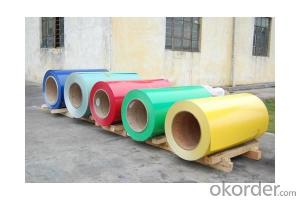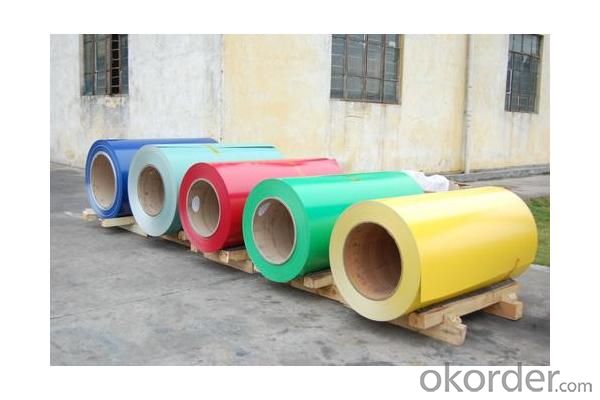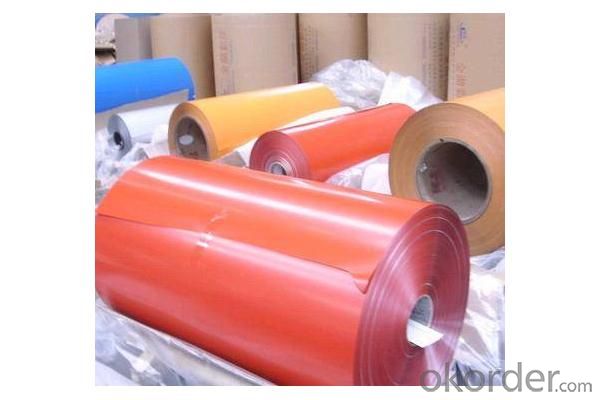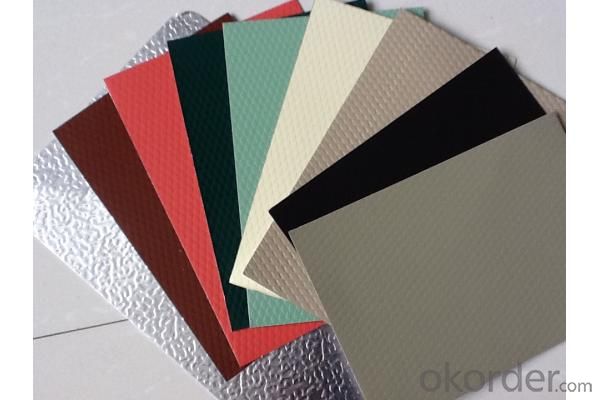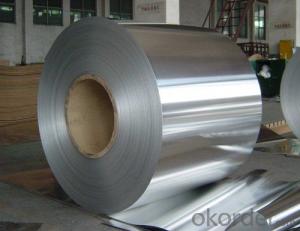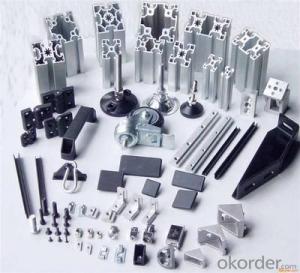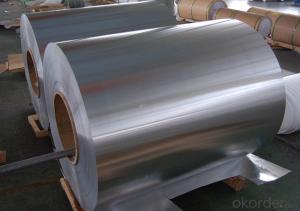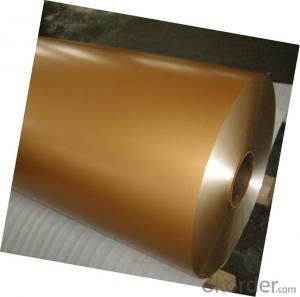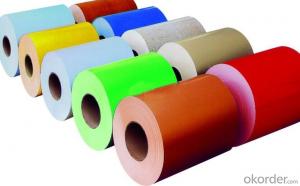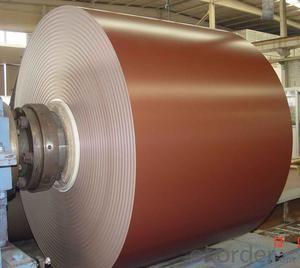Colored Aluminum Coil - Ceiling Colorful Aluminum Coils 6063 6060 6062
- Loading Port:
- Tianjin
- Payment Terms:
- TT OR LC
- Min Order Qty:
- 100 m.t
- Supply Capability:
- 10000 m.t/month
OKorder Service Pledge
OKorder Financial Service
You Might Also Like
Specification
Specification of Color Coated Aluminum Coil | |
Alloy | 1050 1060 1070 1100 1200 1235 / 3003 5052 5083 6061 6063 5005 etc. |
Alloy or not | Non-alloy / Alloy |
Temper | O, H112, T4, T5, T6, T651 etc. |
Specification | Thickness: 0.5mm - 500mm |
Width: 600mm - 2200mm | |
Length: 1000 - 6000mm or in coil size | |
Surface | coated |
Application | Heat preservation\ refrigerator\ Furniture\ decorate\ industry\ |
construction\ mould and so on | |
Features | 1.With good plasticity no matter in Cold and Hot condition; |
2. Can be pressed into various shapes of Construction Profile; | |
3. Easy to weld and cold process with good mouldability; | |
4. Can be processed into Sheet, Strip, Tube, Bar, Profile, Forged Piece, etc | |
5. Long life time. | |
MOQ | 3 Ton |
Package | wooden pallets or as customer request |
payment | 30% by T/T as deposit, and the rest 70% balance before loading. |
Delivery time | 15-30 days after receiving the deposit. |
Coating of Color Aluminum Coil
Coating thickness | PVDF >=25micron POLYESTER>=18micron |
Color standard | E < 2 or it is not obvious by eyeballing |
Pencil hardness | > 2HB |
Coating adhesive | not lower than first grade Impact: no any crack (50kg/cm, ASTMD-2794:1993) |
Bend strength | >100 times |
Boiling point: | no any distortion and color change (in the 99 more or less 1 degree water, then cooling 2 hours) |
Corrosive | surface deep in the 5% muriatic acid and 5% NaCL, |
interior deep in the 2% muriatic acid and 2% NaCL, after 48 hours, no change |
Application of Color Coated Aluminum Coil
Main Usage: Aluminium curtaim wall, Aluminium Composite Panel, Aluminium Honeycomb Plate, Ceiling,
Roof, Roller Shutter Door, Garages Door, Furniture, Electronic Industry, etc.
Our services
Main Services:
> Precision aluminum plate
> Casting products
> Forging products
Special Services:
> Alloy selection
> Aluminum machining techniques
> Hot working
> Surface treatment
Our Promise
---High quality stainless steel with reasonable price.
---Wide excellent experiences with after-sale service.
---Every process will be checked by responsible QC.
---Professional packing teams which keep every packing safely.
---Trial order can be done in one week.
---Samples can be provided as your requirements.
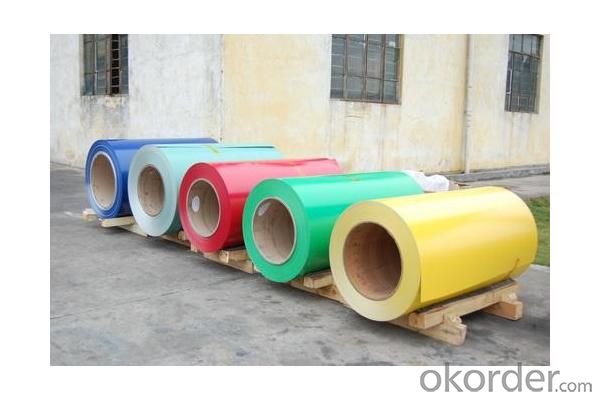
- Q: Is it possible to use a magnet to determine if an aluminum coil has magnetic properties?
- <p>No, you cannot use a magnet to test the magnetic properties of an aluminum coil. Aluminum is a non-magnetic material, meaning it does not have magnetic properties and will not be attracted to a magnet. Magnets are used to test ferromagnetic materials like iron, nickel, and cobalt. To test for magnetic properties, you would need to use a different method, such as an electromagnetic induction test, which can detect magnetic fields generated by electrical currents in a coil.</p>
- Q: Can aluminum coils be customized in terms of thickness?
- Yes, aluminum coils can be customized in terms of thickness. The thickness of aluminum coils can be modified through various manufacturing processes to meet specific requirements and applications.
- Q: My mom was being an idiot and used the steel spatula to scrape the cookies off an aluminum cookie sheet. Now there are small bits of aluminum on the bottom of the cookies. I just ate a few of them (5) before i noticed it, should I be worried?
- It would only be a problem if you constantly expose yourself to aluminum filings. Heavy metals (things like lead or mercury) are toxic to people. What most people don't realize is that that in order for these metals to be toxic, you have to be exposed to them for a long period of time and in fairly large quantities. In general, lead is in your tap water. You've probably accidently drank more aluminum filings from soda cans than you have eaten from those cookies. Still though, there is no point in trying to expose yourself to something you know you shouldn't have in your body. So I wouldn't eat any more.
- Q: I have a school project due in a couple weeks and I need to make a life size sculpture of a camera. I don't want to make it solid because that would use a lot of clay and wouldn't evenly cook. Can I put something inside like aluminum foil?
- The aluminum will not allow the clay to shrink as it dries. The clay will crack. Also, the aluminum will melt around 1200* so you need to know how hot you will be firing the kiln. You should be able to make the camera body by the slab method and make a box and add the lens and knobs. This will give you a hollow body.
- Q: Can aluminum coils be used for heat transfer applications?
- Yes, aluminum coils can be used for heat transfer applications due to their excellent thermal conductivity properties.
- Q: How do aluminum coils contribute to reduced maintenance costs?
- Aluminum coils contribute to reduced maintenance costs due to their corrosion-resistant nature. Unlike other metals, aluminum does not rust or corrode easily, which means that the coils require less maintenance and replacement over time. This leads to cost savings as there is less frequent need for repairs, coatings, or replacements, resulting in reduced maintenance expenses.
- Q: How much is aluminum-plastic panel with the 0.155mm thick aluminum per ton?
- The price is around 17000 yuan per ton, but you need to take the surface effect into account
- Q: What are the potential applications of recycled aluminum coils?
- Recycled aluminum coils have a wide range of potential applications due to their numerous beneficial properties. One potential application is in the manufacturing of automotive parts. Aluminum coils can be used to create lightweight body panels, engine components, and structural parts, which can help reduce the overall weight of vehicles, leading to improved fuel efficiency and reduced emissions. Another potential application is in the construction industry. Recycled aluminum coils can be used to make roofing materials, siding, gutters, and window frames. Aluminum is known for its durability, corrosion resistance, and ability to withstand extreme weather conditions, making it an ideal choice for construction purposes. Additionally, recycled aluminum coils can be used in the production of packaging materials. Aluminum is widely used for manufacturing beverage cans, food containers, and foil packaging due to its excellent barrier properties, which help to preserve the freshness and quality of the packaged products. Using recycled aluminum coils for packaging can contribute to reducing the environmental impact associated with the production of new aluminum, as well as reducing waste. Furthermore, recycled aluminum coils can be utilized in the manufacturing of electrical equipment. Aluminum is an excellent conductor of electricity, making it suitable for the production of electrical wires, cables, and other electrical components. Using recycled aluminum coils in the production of electrical equipment can help conserve energy and reduce the need for virgin aluminum extraction and processing. Overall, the potential applications of recycled aluminum coils are vast and diverse, ranging from automotive and construction industries to packaging and electrical equipment. By utilizing recycled aluminum coils, we can achieve both environmental and economic benefits, reducing waste, conserving resources, and promoting sustainability.
- Q: Are aluminum coils suitable for heat sinks?
- Yes, aluminum coils are suitable for heat sinks. Aluminum is a popular choice for heat sinks due to its excellent thermal conductivity and low cost. The high thermal conductivity of aluminum allows it to efficiently transfer heat away from a heat source towards the fins of the heat sink, where it can be dissipated into the surrounding environment. Additionally, aluminum is lightweight and easily formed into various shapes, making it a versatile material for heat sink applications. Overall, aluminum coils are a suitable choice for heat sinks, providing effective heat dissipation and cost-effectiveness.
- Q: 94 f150. have the stock wheels which are weathered and dull. whats a good way to bring the shine back? some of the original coating is there ,most is gone. tried mothers aluminum wheel polish,does nothing. is it wise to use a wire wheel in a drill to get down to just the aluminum? the wheels are those with the center plastic cap with holes around the outer edge.thanks for any info
- I am not sure if you can sand them down an put a clear coat on them? I can say this is why you see older vehicles with plasti-dip coatings, to cover up the dings, curb rash and peeling clear coat, and the cost is lower than replacement. List your city and state. In my area there is wheel specialty shop that does tig welding repairs and will do a factory refinish. Look for one of those places. Or buy new rims and sell the old ones online.
Send your message to us
Colored Aluminum Coil - Ceiling Colorful Aluminum Coils 6063 6060 6062
- Loading Port:
- Tianjin
- Payment Terms:
- TT OR LC
- Min Order Qty:
- 100 m.t
- Supply Capability:
- 10000 m.t/month
OKorder Service Pledge
OKorder Financial Service
Similar products
Hot products
Hot Searches
Related keywords
